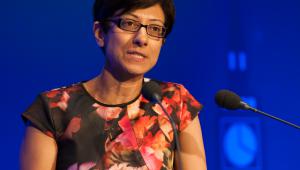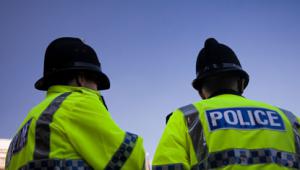By Richard Johnstone | 25 February 2013
Last November’s elections for police and crime commissioners ‘failed both candidates and voters alike’ due to government mismanagement of the polls, the Electoral Reform Society has said.
The elections for the new commissioner posts attracted the lowest turnout in peacetime, at just 15.1% of registered voters.
In a report published today, the ERS said the management of the November 15 vote had ‘handed our elected commissioners a poisoned chalice, and it remains unclear how they can overcome it’.
Among the flaws highlighted by the campaign group was the decision to move the vote from May to November, which created a barrier to voters turning out.
Voters were also left in the dark about their local candidates, due to a lack of information on those standing, according to the report, How not to run an election report. Information about candidates is posted to every household during parliamentary, mayoral and European elections in the UK but this did not happen ahead of the PCC votes as ministers sought to keep costs down.
Candidates were also put off from standing by the large deposits demanded. These were set at £5,000, ten times the amount needed to stand as an MP or elected mayor. High campaign costs, due to the vast electoral districts covering police force areas, also reduced the number of candidates.
In a poll conducted in January this year, only 11% of respondents could correctly name the person elected for their area.
‘In other words, after spending £75m holding the elections and millions more to staff and resource officeholders, nearly 90% of Britons have no idea who their elected police and crime commissioner is,’ ERS chief executive Katie Ghose said.
‘Although the turnout of 15% was considered dismal by everyone – apart from the government – it seems that even fewer people than actually voted can name their local PCC.’
She added there had been ‘no shortage of warnings’ about the likely low turnout and lack of recognition from candidates and the Electoral Commission as well as the ERS, but these were ignored.
Among the report recommendations, ministers have been urged to never hold another election in the winter months, as this discourages people from turning out. The government should also ensure information on candidates is provided in mailings to voters in all future national votes.
Responding to the report, a Home Office spokesman said that turnout would increase in future votes 'as people see the real impact PCCs are already making in their areas'.
He added: 'These elections marked the biggest democratic reform in policing in our lifetimes. More than 5 million people turned out to vote for the first ever election of police and crime commissioners, giving them an infinitely bigger mandate than the unelected and invisible police authorities they replaced.
'The Home Office will look at the points made in this report, along with the conclusions of the recent assessment by the Association of Electoral Administrators.'






















